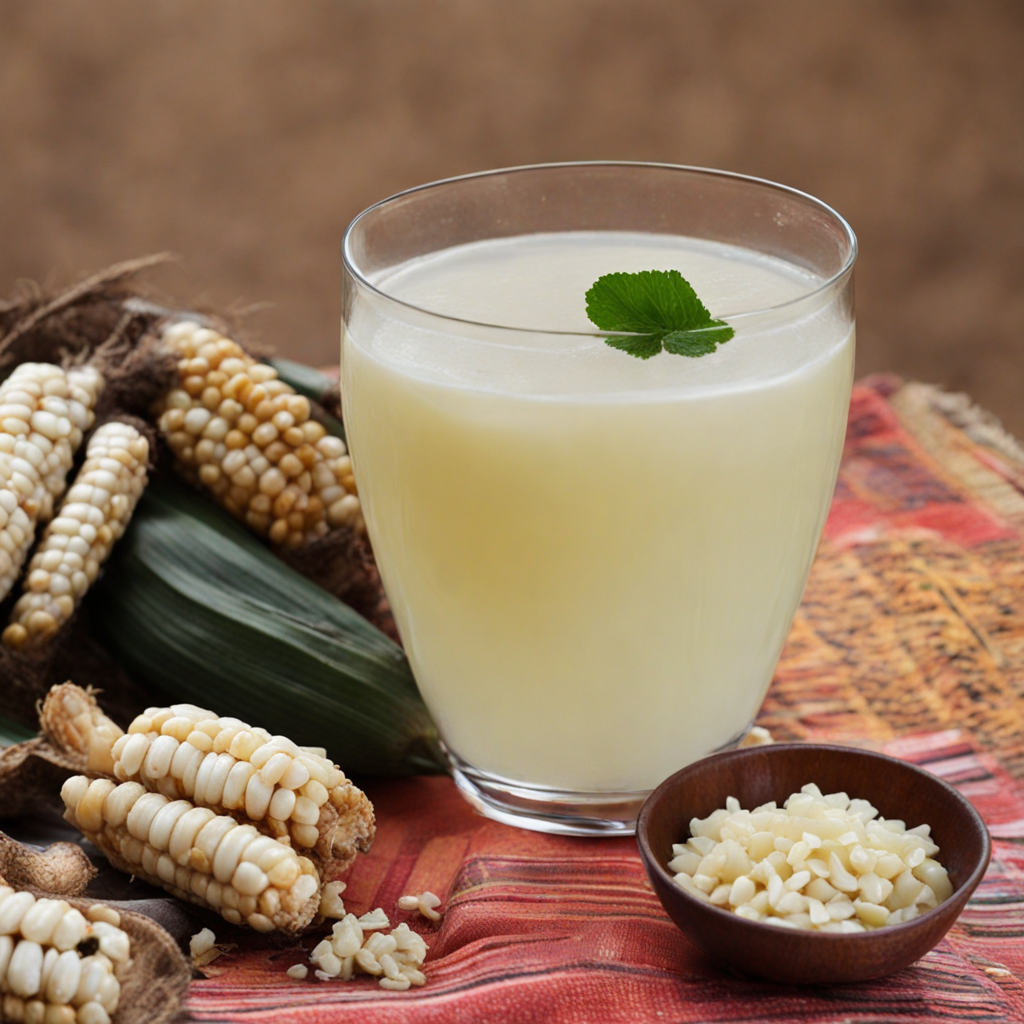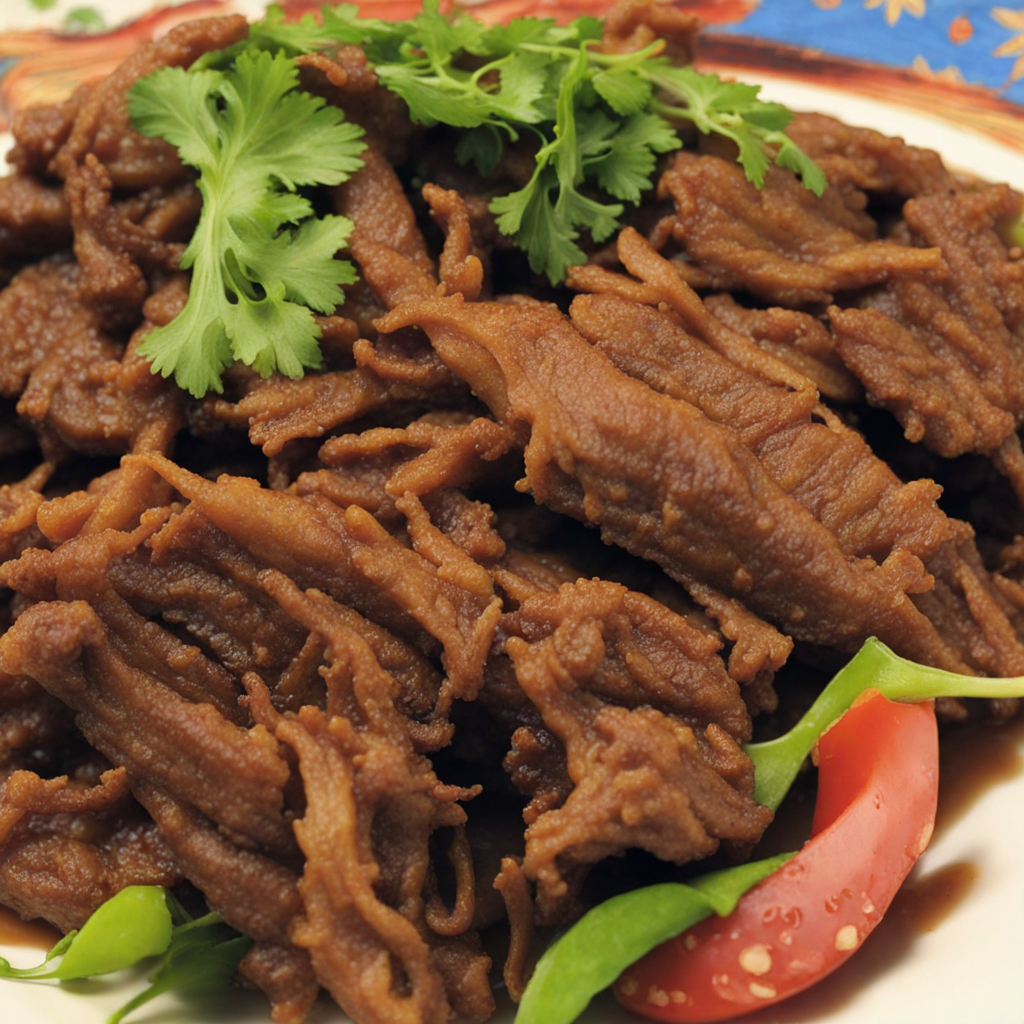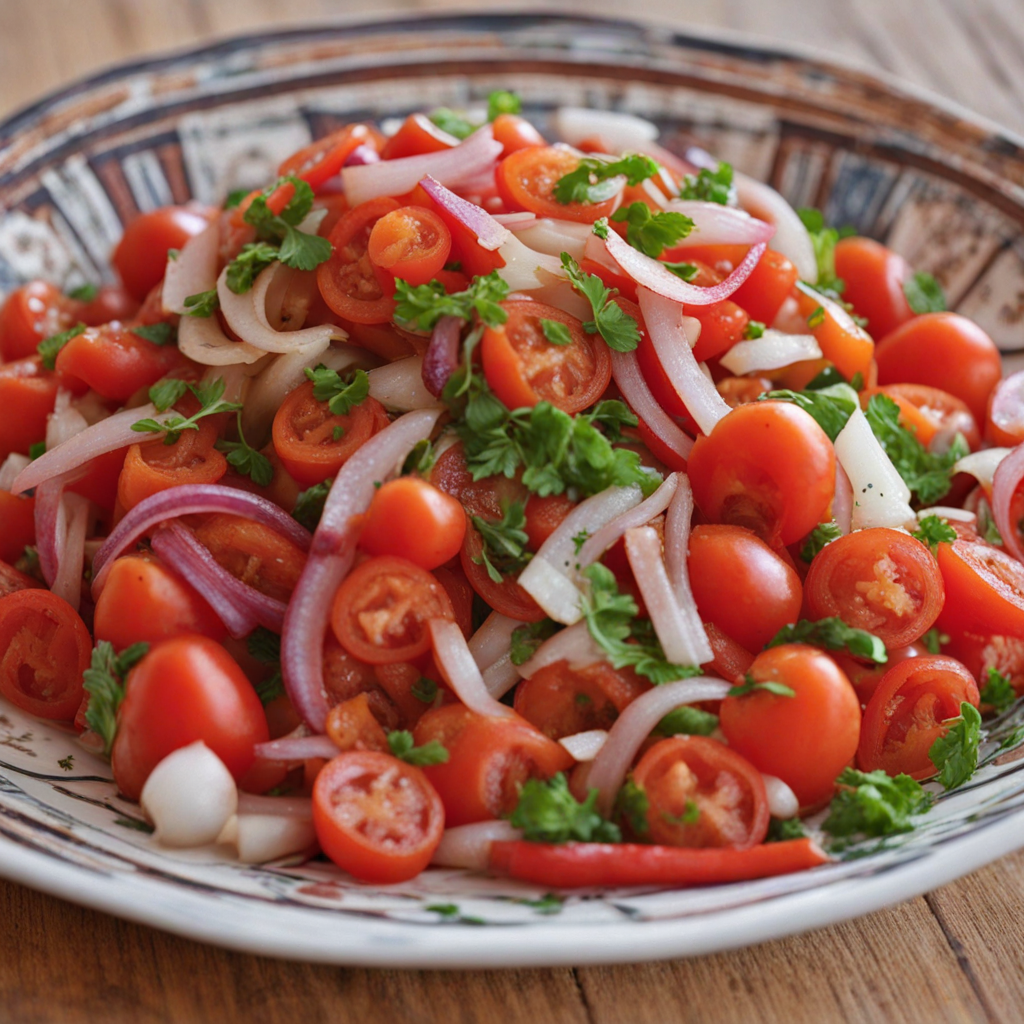Thobwa
Thobwa is a traditional Malawian beverage that embodies the rich culinary heritage of the country. Made primarily from fermented maize, it is a slightly alcoholic drink that captures the essence of local grains and is often enjoyed during social gatherings or special occasions. The preparation of Thobwa involves soaking, grinding, and fermenting maize, which results in a creamy, smooth texture. The fermentation process not only enhances the flavor but also contributes to its unique aroma, making it a delightful experience for the senses. The flavor profile of Thobwa is complex and intriguing, offering a balance of sweetness and a mild tanginess that comes from the fermentation. It has a refreshing quality, making it an excellent drink to sip on warm afternoons or during festive celebrations. The beverage is typically served chilled and can be enjoyed on its own or paired with local snacks and dishes, such as nsima (a staple maize dish) or grilled meats, enhancing the overall dining experience. Thobwa is more than just a drink; it is a cultural symbol that connects people and traditions in Malawi. It is often prepared in large batches for communal enjoyment, fostering a sense of togetherness among friends and family. The experience of tasting Thobwa is not only about savoring its unique flavor but also about participating in a time-honored ritual that reflects Malawi's rich agricultural practices and communal spirit. For those seeking a new taste, Thobwa offers a delightful journey into the heart of Malawian cuisine.
How It Became This Dish
Thobwa: A Cultural and Culinary Journey from Malawi #### Origins Thobwa, a traditional Malawian beverage, is a fascinating product of the country's rich agricultural heritage and communal traditions. Its origins can be traced back to the early inhabitants of the region, who relied heavily on agriculture for sustenance. The drink is primarily made from fermented maize (corn), which has been a staple crop in Malawi for centuries. Maize is not just a source of food; it holds significant cultural and economic importance for many Malawians. The process of making thobwa is deeply rooted in traditional practices. It begins with soaking maize grains in water, followed by grinding them into a coarse meal. This meal is then boiled to create a porridge-like consistency. Once the porridge cools, it is mixed with water and left to ferment for several days. This fermentation process is crucial as it transforms the sweet maize porridge into a slightly alcoholic beverage with a tangy flavor and a creamy texture. The final product is often served chilled, making it a refreshing option, particularly in Malawi's warm climate. #### Cultural Significance Thobwa is more than just a drink; it is a symbol of community and togetherness. In Malawi, it is often consumed during social gatherings, celebrations, and rituals. Whether at weddings, funerals, or local festivals, thobwa plays a central role in fostering collaboration and unity among participants. Sharing thobwa is an act of hospitality, reflecting the Malawian value of communal living. During these gatherings, the drink is typically served in a shared calabash, emphasizing the spirit of togetherness. Moreover, thobwa is a drink that transcends social classes. While it is commonly consumed by rural communities, it is also enjoyed in urban areas, where it has found a niche among the growing populations of young people seeking to reconnect with their roots. This adaptability speaks to thobwa's enduring relevance in Malawian society. In addition to its social significance, thobwa carries cultural narratives and traditional wisdom. The drink is often associated with ancestral spirits, and some communities believe it possesses healing properties. Elders may share stories about the drink's origins and its importance during rites of passage, further embedding it in the fabric of Malawian culture. #### Development Over Time Over the years, thobwa has evolved, influenced by both internal dynamics and external factors. With globalization and the influx of different cultures, traditional recipes have witnessed variations. New ingredients, such as sorghum or millet, have been introduced, and some urban producers have started incorporating commercial yeasts to speed up the fermentation process. Despite these changes, the core of thobwa remains intact, emphasizing the importance of maize in Malawian cuisine. The rise in tourism in Malawi has also contributed to thobwa's development. Visitors to the country often seek to experience local cuisines, and thobwa has become a highlight of culinary tours. In response, local producers have begun packaging thobwa in bottles, making it more accessible to tourists and urban dwellers. This commercialization has sparked interest among young entrepreneurs, who see an opportunity to market thobwa both domestically and internationally. However, the modernization of thobwa has raised questions about authenticity. Traditionalists argue that the commercialization of the drink might dilute its cultural significance and the communal aspect of its consumption. In response, some communities have taken steps to preserve traditional brewing methods, emphasizing the importance of maintaining cultural heritage in the face of change. #### Nutritional Aspects and Economic Importance Nutritionally, thobwa is a rich source of carbohydrates and provides essential vitamins and minerals. In a country where food security is a pressing concern, thobwa serves not only as a refreshing beverage but also as a supplement to the diet, particularly for those who may struggle to access a balanced meal. Economically, thobwa also represents a source of income for many rural families. Small-scale producers often brew thobwa for sale in local markets, creating a livelihood for themselves. This economic activity supports local economies and encourages sustainable agricultural practices by promoting the cultivation of maize. In this way, thobwa is intertwined with both the cultural and economic landscapes of Malawi. #### Thobwa in Contemporary Malawi Today, thobwa continues to be celebrated and enjoyed across Malawi. While urbanization has influenced the beverage's production and consumption, the drink remains a powerful symbol of identity and heritage. In cities like Blantyre and Lilongwe, thobwa bars have emerged, catering to a younger demographic eager to explore traditional flavors in a modern setting. This trend represents a bridge between the past and the present, allowing for the seamless integration of tradition into contemporary lifestyles. Moreover, the Malawian government and local organizations have recognized the importance of traditional foods like thobwa in promoting cultural tourism. Initiatives aimed at preserving culinary heritage have gained traction, encouraging local communities to take pride in their traditional recipes and methods. Events such as food festivals often feature thobwa, showcasing its role in Malawian identity. #### Conclusion Thobwa is much more than a beverage; it is a vital part of Malawi's cultural tapestry. From its ancient origins rooted in agricultural practices to its modern adaptations in urban settings, thobwa encapsulates the spirit of Malawian community, resilience, and creativity. As it continues to evolve, the drink remains a testament to the enduring significance of food in shaping cultural identities and fostering connections among people. Whether sipped during a joyous celebration or shared among neighbors, thobwa stands as a delicious reminder of Malawi's rich heritage and the importance of togetherness in a rapidly changing world.
You may like
Discover local flavors from Malawi







